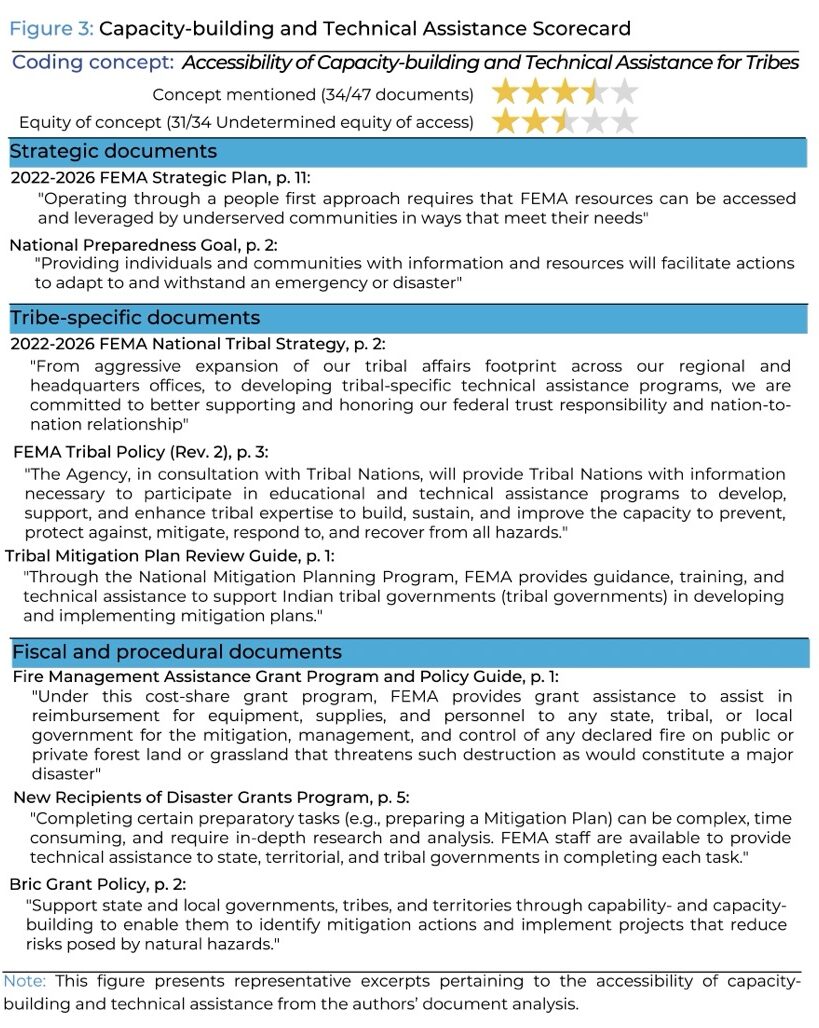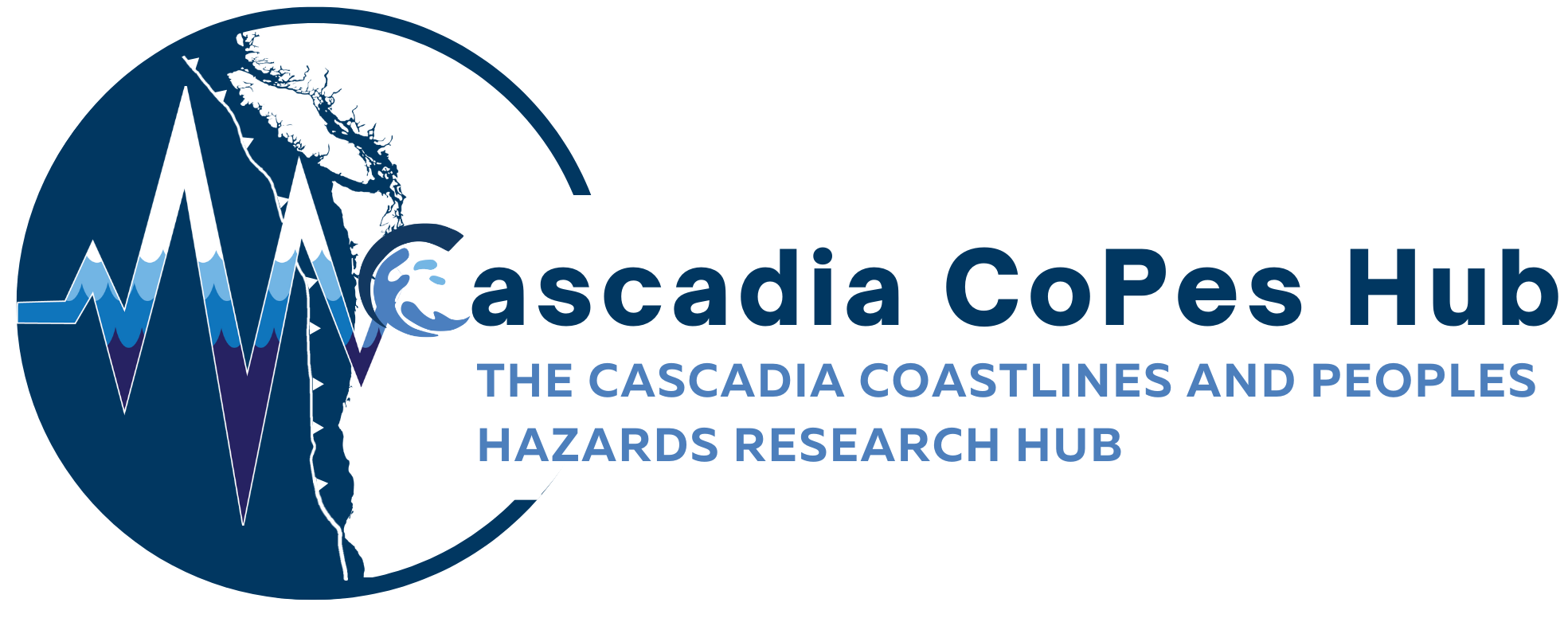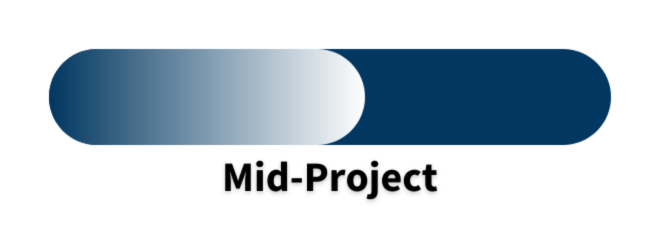Federal Disaster Policy Analysis
with a Tribal Lens
In 2023, a team of graduate students recruited from the Evans School of Public Policy & Governance at the University of Washington evaluated the accessibility of FEMA’s hazard mitigation grant program to Tribal governments applying for funding. Where provisions harmful to Tribal capacity were identified, they recommended appropriate policy changes and suggested workarounds for Tribal governments to pursue. In response to the 2023 Evans School project, a follow-up study has been proposed to explore how Tribal worldviews drive hazard mitigation decision making among Tribes and how these worldviews are considered in FEMA hazard mitigation grant funding mechanisms.
Project Objective:
The goal of this project is to identify any systematic differences in the status and content of these plans, with a particular focus on whether multi-jurisdictional plans covering both Tribes and non-Tribal governments are inclusive of Tribal priorities, strategies, and worldviews.
Our Research:
Tribal governments are theoretically eligible for funding and other assistance from the federal government to support the planning and execution of hazard mitigation projects on Tribal lands. This research encompasses the following series of related projects intended to explore whether that is actually the case, how and why breakdowns occur, and how those breakdowns might be prevented or resolved.
In 2023, a team of graduate students recruited from the Evans School of Public Policy & Governance at the University of Washington evaluated the accessibility of FEMA’s hazard mitigation grant program to Tribal governments applying for funding. These students used qualitative and quantitative research methods to characterize provisions explicitly or implicitly supporting or impeding Tribal capacity to engage in hazard and disaster mitigation, preparedness, response, and recovery. Where provisions harmful to Tribal capacity were identified, they recommended appropriate policy changes and suggested workarounds for Tribal governments to pursue. The project was completed in consultation with tribal staff and coastal hazard researchers affiliated with the Cascadia CoPes Hub. For their work, these students were awarded the Evans School’s Policy and Governance Research Prize. A report prepared by the team is available here. A manuscript based on this work is currently in peer review.

Figure 1
This image is excerpted from the 2023 student report. It is one of a series of scorecards evaluating FEMA policy documents along various metrics of access and inclusiveness.
In response to the 2023 Evans School project, a follow-up study has been proposed to explore how Tribal worldviews drive hazard mitigation decision making among Tribes and how these worldviews are considered in FEMA hazard mitigation grant funding mechanisms. Hub researchers will use semi-structured interviews with emergency managers at Tribal organizations to discuss their experiences with FEMA funding processes. The data gathered from these interviews will inform a set of recommendations for practical workarounds for Tribes seeking to apply for hazard mitigation grants.
In 2024, a team of graduate students from the Evans School are evaluating the content of FEMA-mandated hazard mitigation plans adopted by Tribal governments. The goal of this project is to identify any systematic differences in the status and content of these plans, with a particular focus on whether multi-jurisdictional plans covering both Tribes and non-Tribal governments are inclusive of Tribal priorities, strategies, and worldviews. A report prepared by the team is forthcoming.

